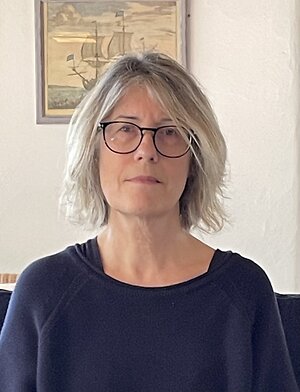
Counselling by phone or video call
I am a highly experienced BACP accredited psychotherapist, qualified to work in a number of therapy modalities, including psychodynamic psychotherapy, cognitive behavioural therapy (CBT), sensorimotor psychotherapy, and internal family systems (IFS). During my psychodynamic training in the early 2000s, I worked part time as a psychodynamic therapist in the NHS and then set up a therapy private practice part time alongside a career in finance. After training in CBT, I worked in 2014 on an Employee Assistance Programme, providing therapy to doctors and hospital consultants who were experiencing mental health difficulties e.g. due to pressure of work. In 2015, I joined the permanent staff at University College London to provide short term psychodynamic therapy to students, as well as single session therapy when needed, with responsibilities for risk assessing students and managing their safeguarding. Since 2024 I work exclusively in private practice, providing time-limited or open-ended therapy to individual adult clients by video call or telephone, drawing integratively on all the therapy models in which I have trained. I also draw on previous experience in the financial services industry, including as a Financial Ombudsman, to provide financial therapy for clients who want to explore their relationship with money.I support clients with difficulties such as:
When working with CBT, the use of questionnaires in sessions helps to identify the nature of the difficulties clients are experiencing and how severely they are affected by them. This makes it easier to provide the right kind of help and to monitor progress from week to week.
Amongst the aspects of mental health that are explored in CBT are 'core beliefs'. CBT teaches that some of us hold unhelpful or inaccurate negative core beliefs about ourselves, the world and others, of which we may be hardly aware. These may have developed during childhood, when we didn't have the ability to think realistically about what was happening to us and around us. Alternatively, negative beliefs about ourselves may have developed when we had a bad experience as an adult. Once such beliefs have taken hold, they can have a big impact on the way we think, feel and behave in our everyday lives. Becoming consciously aware of those beliefs and where they came from can help us reconsider them and replace them over time with more realistic beliefs that better reflect the person we really are or would like to be. This then feeds into positive changes in the way we think, feel and behave day to day.
CBT is mainly focused on what's happening in your life today, and how your thinking and behaviour may be causing you problems but can be changed.
For some clients, a different approach may be more suitable. There are clients for whom it may be important to spend quite a lot of time talking about painful things that have happened to them in the past and building trust in the therapy relationship. For clients who have relationship problems as their main issue, it may be useful to focus on whether there are any common themes or repeating patterns that can be identified and addressed.
For clients dealing with trauma - either in terms of a single event or more complex trauma which occurred during childhood - it is important to work with the body in order to heal. Sensorimotor psychotherapy focuses on that. IFS can help clients deal with resistances they may have to looking into and resolving their problems and then help them heal their underlying emotional wounds, freeing up parts of their personality that might have got stuck or stopped developing.
As a counsellor with experience of working with clients in a number of different ways, I can either focus on one particular therapy model or draw on them all in a more integrative way, depending on what clients want and need. I can talk to you about that after we've had our initial meeting.
I offer remote counselling by video call or by telephone.
"As you think, so you become.....Our busy minds are forever jumping to conclusions, manufacturing and interpreting signs that aren't there." Epictetus
